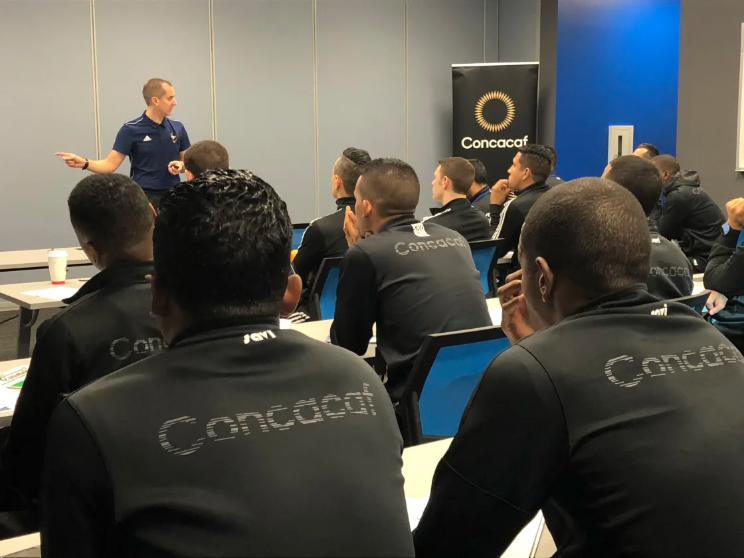22 Concacaf Referees Attend VAR Training
22 referees from across the Concacaf region attended VAR training at the IMG Academy in Bradenton, Florida.
The organisation said, “Referees, consisting of 19 men and three women, are beginning the process of certification to utilize VAR as an on-field referee and to be the video review operator in the booth to assist on-field referees on “clear and obvious errors.”
“We’re excited because we are taking the first steps as a confederation to be able to provide world class VAR to fans and teams in select competitions,” said Concacaf Director of Refereeing Brian Hall.
“It is important to understand that implementation of VAR is more than a replay booth and the referee communicating. There are FIFA and IFAB requirements and procedures that must be met before implementation, so we are making sure our referees will be fully certified and prepared to provide the best possible product,” added Hall.
“The VAR training sessions began on Sunday, January 5 and will conclude on Thursday, January 8 during which the referees will be doing both class work and field work by analyzing matches and replicating real-live situations on the field.
“The idea is that the referees will watch clips from games and then role play. The second part of the training is doing it live during a match, with a referee on the field communicating with two VARs in the booth,” said Hall.
“The training is being led by two experienced FIFA instructors: Mark Geiger and Greg Barkey. Geiger has officiated in two FIFA World Cups, while Barkey was one of the key people responsible for the implementation of VAR in Major League Soccer. Also attending the VAR training is Project Manager Mark Cahen, who is managing the training logistics.
“This is an enormous task that crosses multiple organizations and third parties. We will have to make sure stadiums are certified, that we coordinate with broadcast partners, and that the software works so when it is live, no stone has been unturned. There is so much at stake in football, so this is a welcomed tool for the good of the game. It gives our match officials a second chance to rectify the ‘clear and obvious error’” concluded Hall.”



